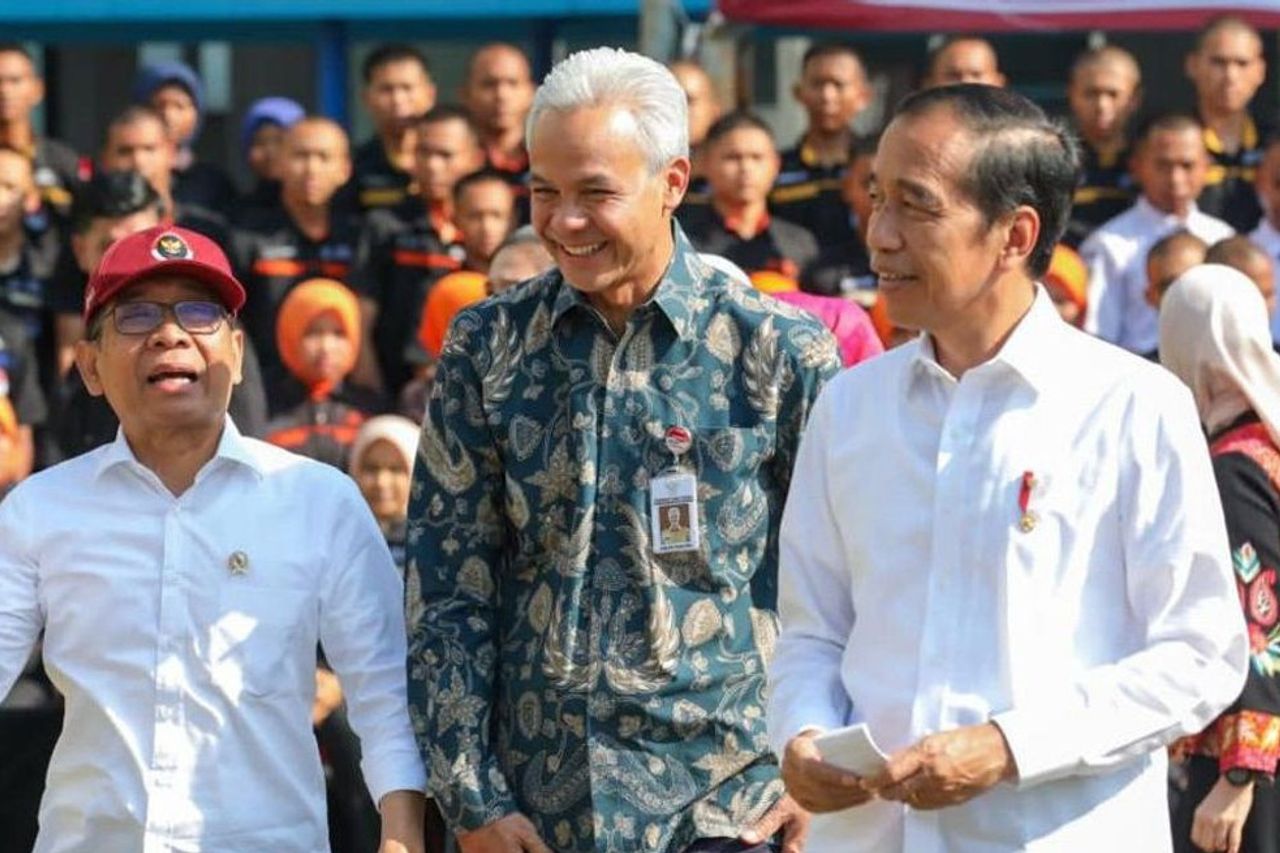Amazing Ganjar Pranowo In Azan Video: Not Selling Religion, Victory Of Presidential Candidates Determined Programs And Trace Records

Ganjar Pranowo suddenly appeared in the Maghrib call to prayer video on one of Indonesia's private television stations. Its appearance invited polemics and immediately became a public conversation.
In the video, Ganjar Pranowo is seen wearing a white shirt with ablution and then continued with congregational prayers at a mosque. The video is widely circulated on social media with various comments in it.
Ganjar Pranowo Tampil Dalam TayanganAdzan MaghribDiRCTI & MNCTV(Media Milik Hary Tanoe) pic.twitter.com/TiUKON1pwL
— Agus Susanto IV (@cobeh2022) September 8, 2023
Ganjar Pranowo Appears In Adzan Maghrib DiRCTI & MNCTV (Hary Tanoe's Media)pic.twitter.com/TiUKON1pwL
Most netizens accuse the presidential candidate from the PDI-P of doing identity politics. This is because previously no public official had appeared as a model for the video of the call to prayer, especially in the political year.
However, not a few also gave positive responses regarding the emergence of the former Governor of Central Java as a model for the call to prayer video.
Political expert from Al Azhar University Indonesia Andriadi Achmad said identity politics is when a person uses ethnicity, religion or race to practice politics. One example of identity politics that has occurred in Indonesia is during the 2017 Jakarta Pilkada. At that time, religious issues became the subject of a campaign or fried group to bring down other groups.
"Identity politics contains SARA issues. An example is during the 2017 Jakarta Pilkada, even though in the previous edition it was not like that. At that time identity politics could not be avoided so it became fried food for other groups," Andriadi said during a conversation with VOI on Monday (11/9/2023).
Even so, Andriadi Achmad assessed that Ganjar Pranowo's appearance in the call to prayer video a few days ago did not include identity politics. Why is that?
Andriadi does not think that Ganjar Pranowo is doing identity politics because the PDI-P presidential candidate will not be highlighting something different from other presidential readings. If Ganjar is accused of committing identity politics by selling religion, according to Andriadi, it is not appropriate, because the other two candidates are both Muslim.
In addition, Andriadi also did not include Ganjar Pranowo's appearance in the call to prayer video as identity politics because the man who was born on October 28, 1968 is currently unemployed.
The appearance of Ganjar in the call to prayer video is actually no problem. Other presidential candidates are also Muslim. Called identity politics if other presidential candidates are different religions, this is all Islam. In addition, other presidential candidates were also promoted by Islamic parties. Anies Baswedan was promoted by PKS and PKB, Ganjar was promoted by PPP and Prabowo Subianto by PAN," Andriadi added.
The video of the call to prayer featuring Ganjar Pranowo also cannot be called identity politics because he appears as an ordinary person. Ganjar is currently unemployed. He has released his position as Governor of Central Java and has not registered with the KPU as a presidential candidate. So it can't be said that he is doing identity politics.
Identity politics by raising religious issues has become a political sale in recent years. An example is when Anies Baswedan and Basuki Tjahya Purnama fought for the position of Governor of DKI Jakarta 2017.
At that time, religious issues were completely fried during the DKI gubernatorial election after the man who is familiarly called Ahok was claimed to have committed blasphemy by degrading Al Maidah's letter paragraph 51 during a working visit to Pramuka Island, Thousand Islands. Ahok was found guilty and sentenced to two years in prison.
According to Andriadi, identity politics by raising religious issues is indeed attractive and quite effective. However, according to him, in today's era, identity politics by bringing religious issues is not selling well and instead tends to be detrimental. This is based on the fact that Joko Widodo won the last two edition elections despite being hit by religious issues.
Andriadi also said that historically, Islamic parties had not won since the 1955 elections. In 1955, the Indonesian National Party (PNI) came out as the winner of the first edition of the election. After that, the Working Group (Golkar) dominated the elections from 1971 to 1997. In the reform era or since the resignation of President Suharto in 1998, it was the turn of the ruling PDI-P by three times becoming the winning party. Meanwhile, Golkar and the Democratic Party were in power in 2004 and 2009.
"In fact, Muslims as the majority population in Indonesia do not choose Islamic parties. Identity politics by raising religious issues is not very good, not attractive, even tends to be detrimental," said Andriadi.
Identity politics is no longer selling well now because religion is not attractive. It is enough that the 2017 DKI gubernatorial election was successful, after that in the 2014 presidential election and 2019 identity politics was not attractive.
Moreover, Andriadi said, the potential for generation (gen) Z and millennials in the 2024 General Election was the largest. Referring to the population census, the number of Gen Z reached 27.95 percent or 75.94 million of the total population of Indonesia in 2020 which was 270.2 million people.
اقرأ أيضا:
Meanwhile, the millennial generation is 69.38 million people or 25.87 percent. Thus, the 2024 election is predicted to be dominated by the two generations by close to 60 percent.
"In the 2024 election, the majority of the electorals will come from millennials and Gen Z who are more rational, more educated. So they choose not because of ethnicity or religion, but because of the work program and track record para presidential candidates," he concluded.
